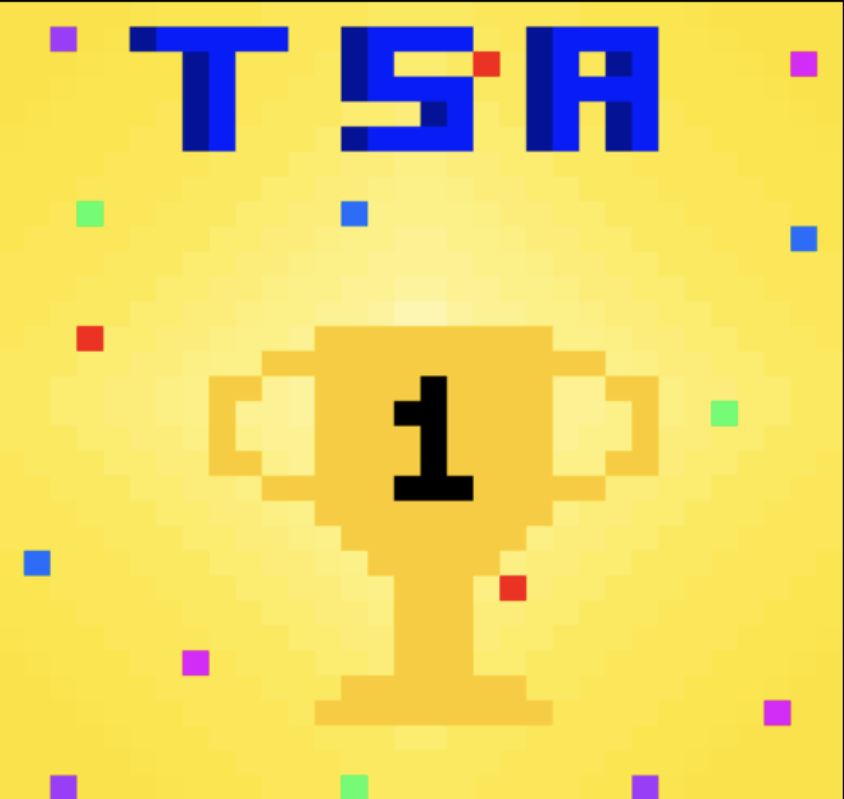Role: Project Lead Date Completed: 2018-2019

This project was for a high school STEM competition hosted by an organization called
the Technology Student Association, and this submission was for the event "Video Game Design".
The goal of the event was that your team must create a game based off the year's theme - RPG -
and would award higher scores for incorporating well-thought out design and promoting educational characteristics
in one's gameplay.
The game that the team created was a 2D RPG that narrates the journey of a TSA student named David who had forgotten his flashdrive
with his video game submission back in his hotel room. With only a short time to spare, he had to rush back to his room but was blocked
by puzzles and riddles along the way.
Link to the Game
Initially, I had joined the team with the goal of just programming the video game as one of the members
of the team wanted to be the project lead as they were the one that gathered the team together. I did not expect
to manage the project or the development of the game's direction as I knew that the lead wanted to be responsible
for it.
As for the project, we were given a time frame of September - February to complete our game as the competition was held at the second
level of the high school competition - the three being district, state, and nationals. However, because of (I assume) the lead's busy schedule
and not having the time to schedule work meetings, the project did not have any progression.
So this goes on until January, and while I am at the districts conference competing for my other TSA events, the project lead had just realized the impending deadline
that we were in and how we now had only about three weeks to create a video game and to document its creation - all with a team of beginners. The project lead
had then came to me and asked me to be the lead as I had previously led the video game design team back in middle school for a year (albeit we produced
a very amateur game and did not make it past the second level).
With the desire to give the team a ticket to nationals and to "avenge" my previous year's performance, I had accepted the role and began brainstorming that very
moment on what type of RPG game we could create with the three weeks we had left. With some discussion with the team, we came
to an agreement of how the game would pan out, and thus, I had planned out a timeline for what needed to be accomplished in the few weeks we
had remaining from team meeetings, objectives, art, level design, documentation, and even the music.
With us working to the very last day, we had managed to submit a game and a portfolio for the competition and achieved
third place at the state level to make it to the national level.
Looking back on it, there were certainly things that I would have done differently if I was in that position today.
I wished that I had taken more initiative in pushing the team to begin working earlier on and to encourage and suggest plans
that the original project lead could have taken to form a timeline where we would not find ourselves pulling an all nighter the day before submission.
However, at the same time I am glad for the struggles that I had experienced because I would not have had a great learning experience otherwise
if everything had gone our way.
Although the results that we produced were not the greatest,
I was nevertheless proud of our team and what they had produced given the short time frame and our overall skill level, and would say that this experience was
one of the best learning experiences that I still remember to this day when it comes to being a leader.
The greatest takeaway that I got from this project is how vital it is to consider uncertainty, project constraints, and
(what I consider to be as important (if not more) as project constraints) the capabilities of each member of the team and what can be plausibly
produced by the team working together. Along every step of the way, from brainstorming to development to scheduling meetings,
I had to consider what was possible for me to ask of my teammates to do as each person still had other events to attend to and of course school work,
and it was important to do so as having unreasonable requests and leading them to feel "overwhelmed" could
have resulted in poor work or maybe none produced at all. Because of these considerations, I believed that it was
one of the main factors that led to our successs.